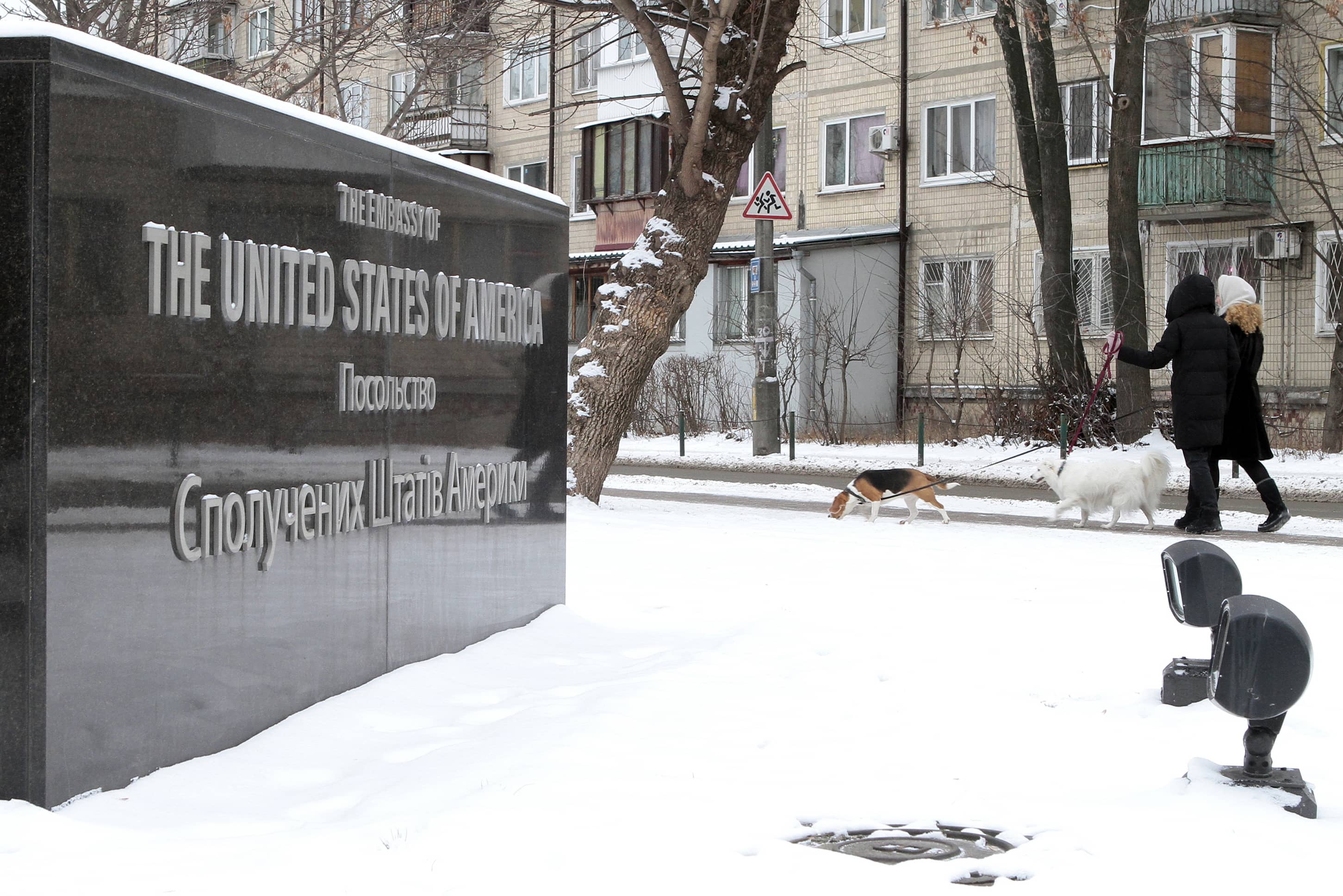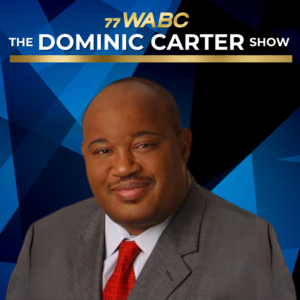
© TASS
Ukraine: US embassy in Kiev, Ukraine
BRUSSELS (AP) — Tensions soared Monday between Russia and the West over concerns that Moscow is planning to invade Ukraine, with NATO outlining potential troop and ship deployments, Britain saying it would withdraw some diplomats from Kyiv, and Ireland denouncing upcoming Russian war games off its coast as unwelcome.
The Western alliance’s statement summed up moves already announced by member countries, but restating them under the NATO banner appeared aimed at showing its resolve. It was just one of a series of announcements that signaled the West is ramping up its rhetoric in the information war that has accompanied the Ukraine standoff.
Russia has massed an estimated 100,000 troops near Ukraine’s border, demanding that NATO promise it will never allow Ukraine to join and that other actions, such as stationing alliance troops in former Soviet bloc countries, be curtailed. Some of these, like any pledge to permanently bar Ukraine, are nonstarters for NATO — creating a seemingly intractable deadlock that many fear can only end in war.
Russia denies it is planning an invasion, and says the Western accusations are merely a cover for NATO’s own planned provocations. Recent days have seen high-stakes diplomacy that failed to reach any breakthrough and maneuvering on both sides.
NATO said Monday it is bolstering its “deterrence” in the Baltic Sea region. Denmark is sending a frigate and deploying F-16 warplanes to Lithuania; Spain is sending four fighter jets to Bulgaria and three ships to the Black Sea to join NATO naval forces; and France stands ready to send troops to Romania. The Netherlands also plans to send two F-35 fighter aircraft to Bulgaria from April.
NATO will “take all necessary measures to protect and defend all allies,” Secretary-General Jens Stoltenberg said. “We will always respond to any deterioration of our security environment, including through strengthening our collective defense.”
In Washington, Pentagon leaders have proposed a range of options for President Joe Biden to reinforce the U.S. military presence in Eastern Europe and the Baltics as a demonstration of American commitment, according to two officials who spoke on condition of anonymity to discuss internal planning.
One of the officials said no specific deployments have been proposed but some unspecified U.S. military units have been told to start planning for that possibility. The other official said Sunday it is possible that reinforcements could be sent from U.S. bases, in addition to possible shifts of troops within Europe, but for the moment the White House and Pentagon are only “exploring options.”
In Moscow, Kremlin spokesman Dmitry Peskov charged that it was NATO and the U.S. who were behind the escalating tensions in Europe, not Russia.
“All this is happening not because of what we, Russia, are doing. This is happening because of what NATO, the U.S. are doing,” Peskov told reporters. He also cited U.S. media reports suggesting that Russia is evacuating its diplomats from Ukraine, something Moscow denied.
The NATO announcement came as European Union foreign ministers sought to put on a fresh display of unity in support of Ukraine, and paper over concerns about divisions on the best way to confront any Russian aggression.












